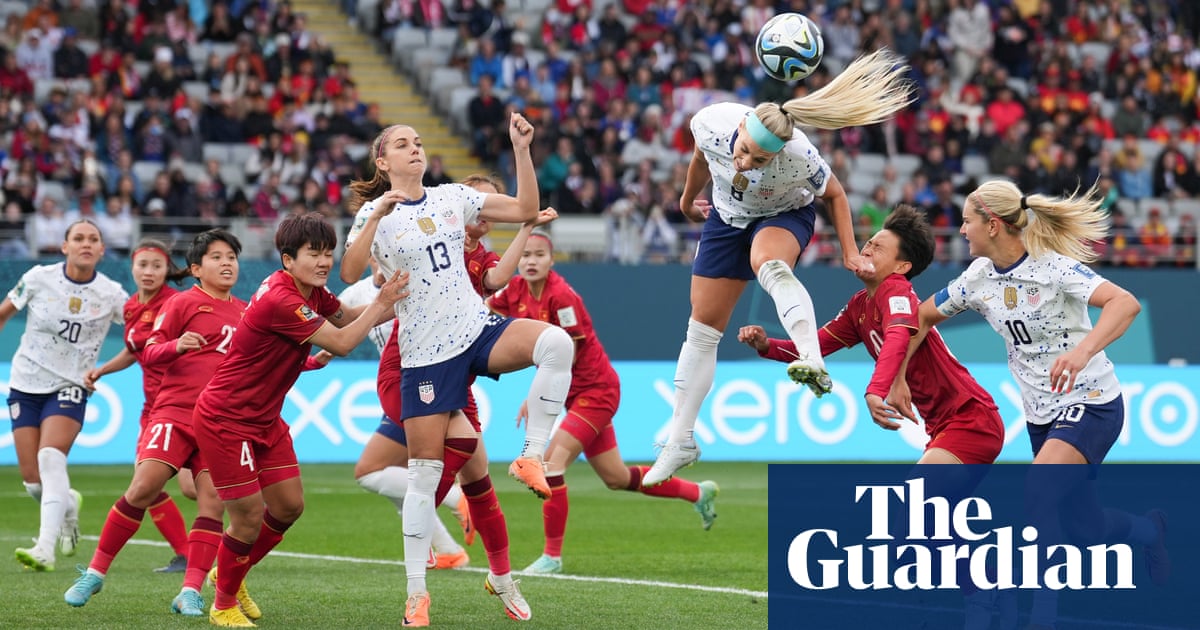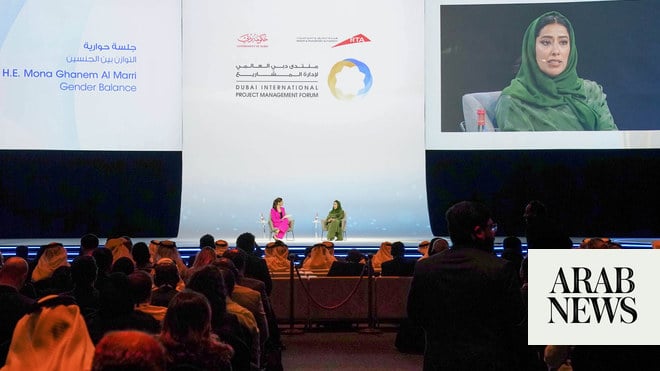
When Suzie Miller wrote Prima Facie, she says she “never really believed it would go on”. The Australian play, which has its UK premiere at the Harold Pinter theatre this week, is a striking one-woman show that follows Tessa (played by Jodie Comer), a working-class barrister, and her experience of sexual assault after years of defending accused rapists. “Writing from a woman’s point of view about sexual harassment was not produce-able,” she says. “Nobody wanted to go see a ‘rape play’.”
Then, in October 2017, the New York Times ran an exposé of Harvey Weinstein, and the ensuing #MeToo movement prompted a reckoning in many industries. UK film and theatre institutions expressed a desire to enact meaningful change, both on and off stage. “I think #MeToo has created a world where suddenly women can be heard,” says Miller. It felt like a real turning point. Not only were narratives of sexual abuse – long regarded as too risky for commercial theatre audiences – being listened to, they were actively being sought out.
Many of the plays staged in the wake of the #MeToo movement focused on Weinstein and his victims, with some of the most successful works originating from women with personal experience of the producer’s crimes. In Snatches, a series of monologues curated by Vicky Featherstone, Weinstein survivor Romola Garai performed a scene in which a young actor is invited to meet a senior producer in his hotel room. Another Weinstein survivor, Rose McGowan, staged her own one-woman show, Planet 9, at the 2019 Edinburgh fringe, to a positive reception.
But the male-dominated theatre establishment did produce some more dubious responses. Steven Berkoff’s Harvey and David Mamet’s Bitter Wheat – both written immediately after the news had broken – directly invoke Weinstein, turning him into a main character, and thus shifting focus away from the victims to the perpetrator. Both Berkoff and Mamet were accused of rehashing the #MeToo revelations for entertainment, delivering work that, in the words of one critic, was intended to inflame discourse through “courting scandal by inertia”. Harvey is a one-man monologue, forcing audiences to linger in the mind of a sexual predator as he makes excuses for himself, while Bitter Wheat treats its loathsome protagonist, rapist Barney Fein, as a figure of twin fascination and disgust. “The world has been shaped for thousands of years by the male perspective,” Miller says. “The patriarchy has profoundly silenced women.”
Theatrical works about sexual assault continue to be marketed using #MeToo as a reference point, even in the title in some cases. The problem with presenting sexual assault narratives through the lens of the hashtag is that it limits the scope of the problem, reducing systemic inequality down to the spectre of Weinstein, implying that the removal of a few “bad eggs” can eradicate the issue. Indeed, some influential names have been forced to step down. Most notably, the former artistic director of London’s Royal Court theatre, Max Stafford-Clark, who was forced out of his Out of Joint theatre company after a formal complaint that he made lewd comments to a member of staff.
But the fundamental changes that #MeToo promised have not been as meaningful or lasting as many in the industry hoped, and allegations of rape and sexual misconduct have continued to plague the industry. Scottish actor Kevin Guthrie was jailed for three years after being charged with sexually assaulting a woman. In Kettering, community theatre director Christopher Lynch was jailed for 16 years after being convicted of assaulting multiple teenage girls under the guise of staging auditions. “It’s still a work in progress,” says Miller. “Women artists in theatre have so much to lose by speaking out.”
The actor and playwright Sarah Milton agrees that there’s a lingering culture of fear: “You hear the same names being passed around,” she says. “It’s so difficult for women to get a seat at the table that it feels too risky to call it out.” Milton wrote and stars in 4, another one-woman play tracking the fallout of a sexual assault, which premieres at north London’s Park theatre on 16 May. Milton takes a hesitant view of equality in the industry. “Topics like rape are still risky,” she says, and could alienate more commercial audiences, making larger companies hesitant to stage them. “After the initial surge of attention that #MeToo provoked, interest has started to peter out.” She thinks this can be explained in financial terms: as Covid restrictions curtailed the ability of theatre workers to make a living, the industry was forced to rely on “tried and tested” male playwrights who would draw audiences – even if their work appeared significantly outdated.
Last year, Mamet’s controversial 1992 play Oleanna was staged at the Arts theatre in London. Oleanna – which follows a college professor, John, being accused of harassment by his student, Carol – was billed as “searingly relevant in the age of #MeToo”. It culminates in a scene of extraordinary violence, wherein Carol is beaten by John, a man twice her age who has already assaulted her, in a fit of rage. It can be a distressing scene for audience members to witness, and even for actors to perform. Some viewers balked: why stage that particular play, when so many others have been written by women who have lived experience, and explore sexual assault from the survivor’s perspective? Or as Lyn Gardner wrote in the Stage: why do these men think they are the best people to tell this story? “It’s not that I don’t think men can write #MeToo narratives,” says Milton, “but there can be an element of exploitation or reduction” in their works.
“#MeToo was a seismic shift,” says Lizzy Talbot, an intimacy coordinator for stage and screen. “Before 2017, I was lucky to get a reply to an email.” Intimacy coordinators are responsible for safeguarding actor health during challenging and sensitive scenes. The impact of performing hundreds of shows centred on rape or assault, Talbot says, “can be devastating” – potentially resulting in mental health difficulties, interpersonal issues in the workplace and feelings of insecurity and exploitation. Intimacy coordinators can also advise on best practice for audience safety, such as providing trigger warnings or making it clear that audience members are free to leave if they become overwhelmed or distressed.
However, time and the existential threat of the pandemic have seen interest in the subject wane; lost revenue and reduced funding have shifted the focus of the theatre industry from activism to survival. It’s a different story in film and TV, however, where the greater resources available allow production companies to take more risks while ensuring actors’ needs are met. Theatre’s comparative lack of funding and support is one reason, Milton thinks, why it appears to have stalled on pushing the conversation around sexual assault forward. “I can’t really think of too many stage productions like [those on TV],” she says regretfully. “It’s definitely a funding thing.”
The industry’s gender imbalance further compounds the issue, with a 2019 study by the Sphinx theatre finding only 31% of artistic directors are women, a decrease from a similar study in 2012. In the National Theatre, one of the most well-funded institutions in the country, only 33% of staged productions between 2019 and 2020 were by living female writers. A more recent study from playwright Jennifer Tuckett, conducted in partnership with the Writers’ Guild, found that more than 60% of female theatre workers were considering leaving the industry after Covid-related hardship. “We need more women running theatre and employed across the board,” says Milton. “Until the people running the building look like us,” she argues, the issues raised by #MeToo “risk being forgotten”. Even for those who get to speak and share their experiences, there are significant disparities. Women of colour are severely underrepresented, both on and off stage, meaning their perspectives are often missing from the conversation. Directing resources and attention towards female-led initiatives will continue to assist in making the industry more equitable, and ensure the conversation remains vital and relevant beyond Weinstein.
Plays such as Prima Facie and 4 are part of the solution, exposing audiences to the realities of sexual assault without resorting to shock value or using violence as a selling point. Miller and Milton identify the one-woman format as a source of empowerment, placing all the power solely in the hands of the playwright and actor. “The structure allows the actor to show the nuance of a woman’s inner world,” Miller says, “and allows the rape to happen without it being voyeuristic, or acted-out,” in a way that might appear exploitative. In Prima Facie, Tessa’s working-class background provides a chance to examine the classism that often prevents victims from being heard and justice from being done. When so many cases boil down to “he said/she said”, the experience of being totally immersed in the narrative of the survivor turns the audience into a mute witness. They are made privy to how the law has rendered her unable to prove something that both she and the viewer know has happened, resulting in a shared feeling of rage and despair.
For Milton, writing about her experiences was invaluable. “The format provides immediate empathy,” she says. “There’s no ambiguity about who did what to who, or who is at fault.” She regards #MeToo as an important starting point, saying that she hadn’t even realised she had experienced assault before the movement began to trend, but knows that there is room for growth and improvement in the industry. The easing of restrictions therefore represents an opportunity for meaningful change.












